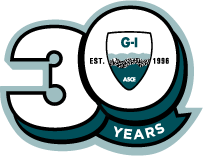Abstracts must be submitted via the online CATALYST Submission Management System.
Information about how to log into CATALYST, create a new account, and navigate through the submission process is available.
Abstracts are due February 12, 2025 at 11:59 PM EST
The Geo-Institute is not planning on offering any deadline extensions for this conference, so please schedule your submissions accordingly.
Guidelines
Abstracts without all the details requested below may not be considered:
- Abstracts must be between 300 to 500 words.
- Abstracts must identify the name of the topic to which the paper is being submitted.
- Abstracts must include the full formal names, credentials, affiliations and email addresses for all authors.
- The corresponding author must be the one who uploads the abstract and presents the final paper.
- Abstracts (and all details requested above) must be uploaded to the online CATALYST Paper Submission System.
- Abstracts are due February12, 2025 at 11:59 PM EST.
Expectation of Geo-Congress Attendance
Every paper awarded final acceptance for presentation is expected to have one author attend the conference and present the paper.
Publication in the conference proceedings without registering for the conference and presenting the paper is not intended. If you will not be able to attend, please do not submit an abstract.
Special Topics for Geo-Congress 2026
- Geotechnical Engineering in Extraterrestrial Environments: Advances and challenges in geotechnical engineering to support extraterrestrial exploration, characterization, hazard identification, resource extraction, and infrastructure
- Climate Resilience: Quantifying and addressing impacts of climate hazards on geotechnical systems; developing resilient solutions and designs that account for climate-related challenges
- Developing the Next-Generation of Geo-professionals: Innovations and strategies for education, recruitment, and workforce development in the geo-professions
- AI and ML in Geotechnical and Geoenvironmental Engineering and Education: Opportunities and challenges with integrating AI and ML into engineering practice and education; applications of AI and ML in geotechnical practice
- Engineering for Cascading and Compounding Geo-hazards: Field observations, physical, analytical, and numerical investigations aimed at understanding compound loads (hazard), performance (vulnerability), and risk for geotechnical infrastructure in a changing climate
- Landslide and Rockfall Analysis and Mitigation: Tools, techniques, and case studies of managing unstable soil and rock slopes
- Earthquake Engineering in the Mountain West: challenging projects, normal faulting ground motions, deterministic vs. probabilistic design for overdue faults
- Near-fault Ground Motions and Deep Basin Site Response: selecting and modeling near-fault ground motions, strategies for modeling and incorporating basin effects into site-specific analyses
- Tailings: Characterization, analysis, and monitoring of tailings storage facilities. Impacts of failures and techniques for remediation
- Geotechnical Engineering Challenges in Soft Clay Soils: from advanced sampling and characterization to predicting settlement and designing deep foundations and excavations
- Advancements in Lightweight Geo-materials: Materials and techniques to leverage lightweight fill in reducing risks, addressing the demands of a changing world, and accelerating project delivery
Core Geotechnical Engineering Topics
- Computational Geotechnics
- Deep Foundations
- Earth Retaining Structures
- Embankments, Dams, and Slopes
- Earthquake Engineering and Soil Dynamics
- Engineering Geology and Site Characterization
- Geoenvironmental Engineering
- Geophysical Engineering
- Geosynthetics
- Geotechnics of Soil Erosion
- Pavements
- Risk Assessment and Management
- Rock Mechanics
- Shallow Foundations
- Soil Improvement
- Soil Properties and Modeling
- Sustainability in Geotechnical Engineering
- Underground Engineering and Construction
- Unsaturated Soils
- Data and Software for Geotechnical Engineering
- Education for Geotechnical Engineering
- Others
